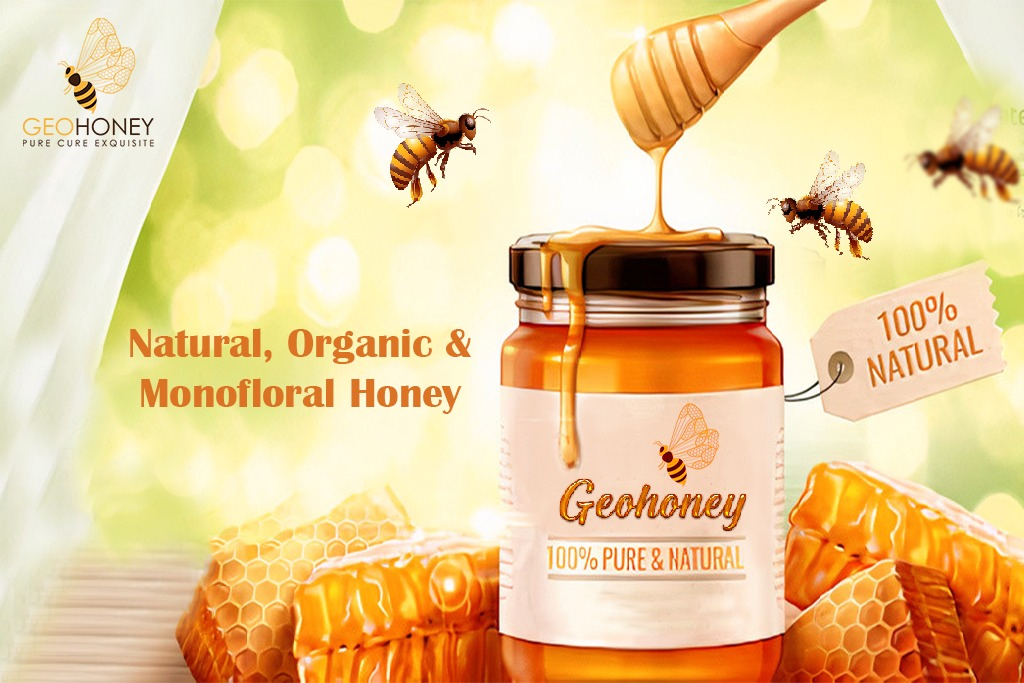- Tokyo: 15:26
- Singapore: 14:26
- Dubai: 10:26
- London: 06:26
- New York: 01:26
A Sweet Guide to Natural, Organic, and Monofloral Honey

Welcome to a world of sweetness, where nature's bounty is bottled and delivered to your doorstep in the form of natural, organic, and monofloral honey. Honey has been a staple of human diets for thousands of years, revered for its delicious flavour and numerous health benefits. But with the rise of natural and organic products, it's never been easier to find high-quality honey that's good for you and good for the planet.
What Exactly is Natural Honey
Natural Honey is a delicious golden elixir made by honey bees from the nectar of various flowers and plants. As a result, natural honey can have a unique flavour and colour depending on the location and season. But natural honey isn't just tasty – it's also packed with health benefits. And because it's a natural sweetener, it's a great alternative to processed sugars and artificial sweeteners.
What is Organic Honey
Organic Honey is honey made by bees that have been raised without the use of pesticides, herbicides, or other harmful chemicals. This ensures that the honey is free from any harmful residues, and that the bees themselves are healthy and thriving. It is also often raw, meaning it hasn't been heated or processed in any way that could diminish its health benefits. It is the purest form of honey you can find, and it's a great choice for anyone who wants to ensure that they're consuming the healthiest honey possible.
What is Monofloral Honey
Monofloral honey is made by bees that have been exclusively foraging on one type of flower or plant. As a result, monofloral honey can have a distinctive flavour and aroma that's specific to that flower. For example, clover honey has a delicate, floral taste, while eucalyptus honey has a bold, robust flavour. And because the bees are focused on one type of plant, the honey can have unique health benefits that are specific to that flower.
But there's more to honey than just its flavour and health benefits. Honeybees play a crucial role in pollinating crops and maintaining healthy ecosystems. Without them, our food supply would be in jeopardy, and many plant and animal species would suffer. That's why it's so important to support responsible beekeeping practices that protect these vital pollinators and their habitats.
How can you Incorporate Natural, Organic, and Monofloral Honey into your Diet?
The possibilities are endless!
You can use it as a natural sweetener in tea or coffee, drizzle it over yoghurt or oatmeal, or use it as a substitute for sugar in baking recipes.
You can even use it in savoury dishes, such as marinades or salad dressings. The options are endless, and the results are always delicious.
In this sweet guide, we'll explore the world of natural, organic, and monofloral honey, and we'll delve into the science behind honey's antibacterial and antioxidant properties, and uncover the best ways to incorporate this sweet treat into your diet. We'll also take a closer look at the importance of responsible beekeeping practices, and how you can support sustainable agriculture and protect our planet's pollinators.
Whether you're a honey connoisseur or a newcomer to the world of natural sweeteners, this guide has something for everyone. So let's dive in and explore the sweet, delicious, and endlessly fascinating world of honey!



